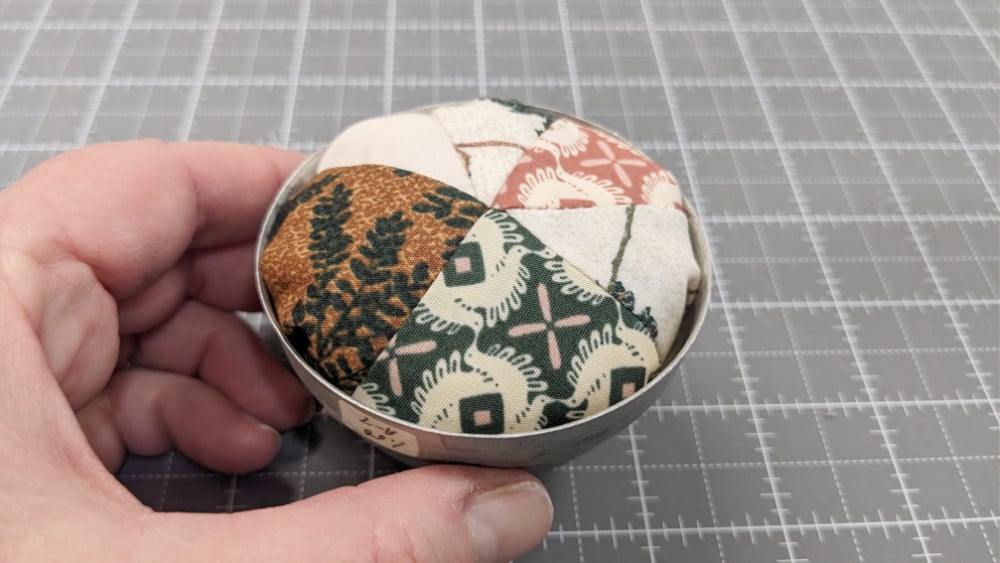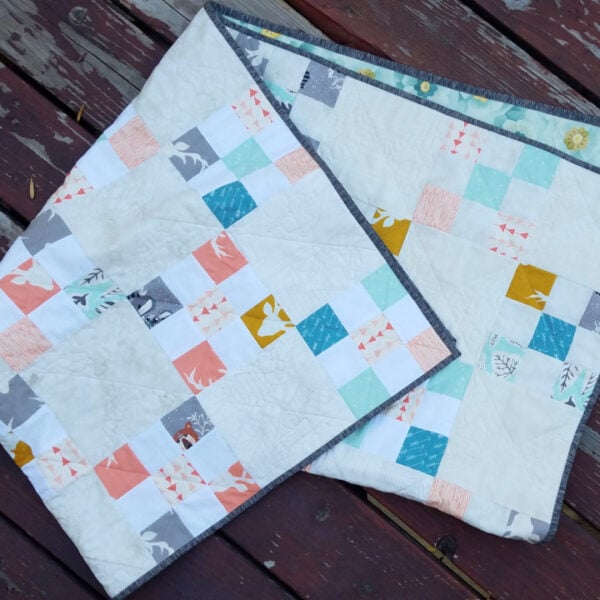Buying a sewing machine is a big deal. The one that I have currently is over 10 years old. I know that the one that my mother started with lasted her over 25 years.
These machines last forever when you take care of them and can stay with you a long time. Buying the right one is important. Nothing is worse than having a new machine that you find frustrating, or doesn’t have the right stitch or the bobbin is empty in 5 minutes.

Checking out the machine before you buy is the best thing you can do. Today we are going to go over a few of the things that I look for when buy a machine.
Sewing machines can be overwhelming to buy. I suggest finding out what you are going to use it for. Deciding on what you are buying the sewing machine for.
Are you going for embroidery, applique, simple straight stitch, fancy stitches….. if you are upgrading or changing your machine- you need to figure out the purpose of it.
Are you looking for a smaller portable sewing machine? One that you can take on the plane? What does it weight? How does it travel?
Download the pdf file here
Buying a Sewing Machine:
How much thread does the bobbin have? Does it run out every hour and will drive you crazy. Lol
What feet sites it come with? How much are additional feet?
How many stitches does it have. Is that important to you.
I’d find out most of these answers when considering a machine. Basic models are great and can last a log time but you don’t want to out grow it quickly.
Also you don’t need something with a lot of stitches when you know they won’t get used. Or look for something a little ahead of you so you can grow into it quickly and is user friendly.
1) Stitches– adjustable: width and depth
2) Machine Quilting– do the feed dogs drop? Regulated Stitching?
3) Thread– What does the machine like to use? How much is loaded on the bobbin? How long does the bobbin last?
4) Throat– What area do you have from the needle to the edge of the table.
5) Applique Stitch— what does the button hole look like? Straight stitch? Diagonal? What kind of adjustments can you make with the stitch?
6) Fancy Stitches- if you are big into decorate stitches then you should take a look at what kind of stitches the machine offers. Whether it’s 10 stitches or 101- make sure they are the ones you are interested in and would use.
7) Classes or Extras- if you purchase your machine from a dealer or quilt shop, some of them offer beginner classes with the machines. This is a great opportunity and one you should take advantage of. Sometimes it takes a long time to figure out what kind of stitches the machines do, using the different feet and more. For sure take the class to avoid all the confusion and find out what your machine can really do!
8) Additional Feet- what basic feet does the machine come with? Are any other feet included in the purchase? What are they? Are they ones that you would really use or just ones that would confuse you?
9) Warranties- does one come with the machine? Does it cost any extra? What does it cover?
10) Go a little bit bigger- if you are impressed with a sewing machine….is there a step up from it? Take a look at that one also. A lot of times it’s best to purchase the next one up because it gives you an opportunity to step up to it, or grow into it. Don’t go over board and buy something way past what you need, but do consider something that has a little more bells and whistles so when you advance in your sewing career you can do it easily without purchasing a new machine.

Extra tip–
Price- Figure out what you are willing to spend and what your budget is before heading out the door. Having this clear in your mind is so helpful. There will be a few sales people out there that will try to get you to commit to something past your budget or push you to the limit. Know what your price is and stick to it. You will be happier in the end if you do. If you don’t have a number in mind, check out pricing online so you have a ball park idea of what machines will cost.
Make a quick list of what you’d like.
To help you out– I have put together a free printable. Even if you don’t end up buying a machine, it might be nice to have this around for reference later when you do buy!

Download the pdf file for this project here
Here are some additional suggestions from the Facebook discussion:
Roz Elliott Auto thread makes my life easier
Teresa Raleigh Needle Down! And these days I insist on a knee lift for my presser foot My heavy duty machine sews through anything and does it quickly too. A good walking foot is a must!
Good luck with your next machine!
Do you have any other suggestions for when you are looking to buy?
Becky Jorgensen is the creative quilter behind Patchwork Posse, the Patchwork Planner and her online quilt group Patchworkers Plus. You can find her patterns in books, magazines, and her quilt membership. Gather your quilting supplies, organize your sewing space, explore the process of disappearing quilt blocks, or finish a free quilt pattern. I'll help you use what you have, finish what you start and make your quilting journey fun!
Follow me here: Facebook, Pinterest, YouTube








Is it possible to do hands-free reverse-stitch?
Lou- wouldn’t that be handy! The fabric does seem to jump….not sure if that’s an option yet.
I have not touched a sewing machine in twenty five years. I have my mom’s 1947 singer but it has few functions. What would you suggest for a beginning quilter and or project sewer? Thanks.
I disagree with some of the ideas on buying a new machine.
1. Usually more stitches better machine.
2. You don’t know what u will be sewing a little bit down the road. I use my “fancy stitches” more than I ever thought I would. Besides some of them t just plain fun
3. Since machines last a long time. It is better to buy an older top of the line than a new one that is less than the older one. You can get some good deals at dealers for these machines. They have service n have a warranty, probably a small one but at least there is that.
4. Yes, you can buy a used machine from a private party. Ask to see the latest service record on it if they say it has been recently serviced. Wouldn’t hurt to call the dealer n find out what problems the machine had or none also.
5. If do buy a machine from a private party you will not only want to know how long it’s been since servicing, but age of machine, where they bought it n how long ago ( u want to make sure it’s not a junker they are trying to get rid of), what problems if any they had with it n you want to sit n sew on it also.
6. If the stitches art exactly straight in a row then ok. Be sure n look at back of fabric u tested on also
7. If the machine is making a ping ping. Sound don’t worry about it a needle will fix that
8. Buying a sewing machines is sorta like buying a car. Always ask if this is your “best deal”, you will be surprised on what deals u can make.
8. Christmas time great time to buy. Sometimes you can get a serger for free with purchase of machine. You will be surprised at the deals u can make on new machine. Ask when they are going on sale. These are for new machines sometimes they get overloaded with older ones n u can get a real bargain.
9. Stay with the top machines (Hate to say this but Singers n store brands are no longer top machines). Phaff,
Janome, Bernina are a few of top machines. Look in Magazines for ads that give u an idea, ask ur friends, a lot of magazine have reviews of machines look these up on Internet.
10. Ask about a warranty one from Company n one from the person selling it. Ask for some free servicing if buying a new machine.
11. Since the machine will be with you awhile please don’t put in s closet, find a place where you can leave it up all the time. You can cover it, but u will get more sewing done, stresses will pretty much go away when I see n
You be so productive u won’t believe it.
One more thing here no matter what machine you buy or have great thread n a new needle each project will make your machine whiz. Of course a little oil after each project. I personally oil after each needle change
I have had people in classes that their machines were giving them fits. As soon as we put new thread (the good stuff) and “Schemtz” needles in machine the machine hummed. Try this before running to get serviced
Remember: Oil, new thread, Schemtz
Needles if those don’t work you probably need a service on your machine.
Hi,
My first sewing machine was an 18th birthday present from my mum. She didn’t consult me, she just bought it, a Singer, with discs that you put into the top to make fancy stitches, and set in a table. It was okay, but it wasn’t what I wanted. I was into making soft toys back then, but of course it wouldn’t take fur fabric, and I never did get the hang of using the discs. I used it a bit over the years (I’m 50 now) but it finally died a few years back, smoke coming out of the motor!
So I bought myself a machine I wanted, another Singer, Heavy Duty. It’s got a couple of extra stitches, does buttonholes, is industrial grey and it’s great. It doesn’t have a table so I can put it where I want, and it feels like it will last for my lifetime. Moral of this story, don’t let someone else buy your machine for you!
Regards,
Barbara Harris